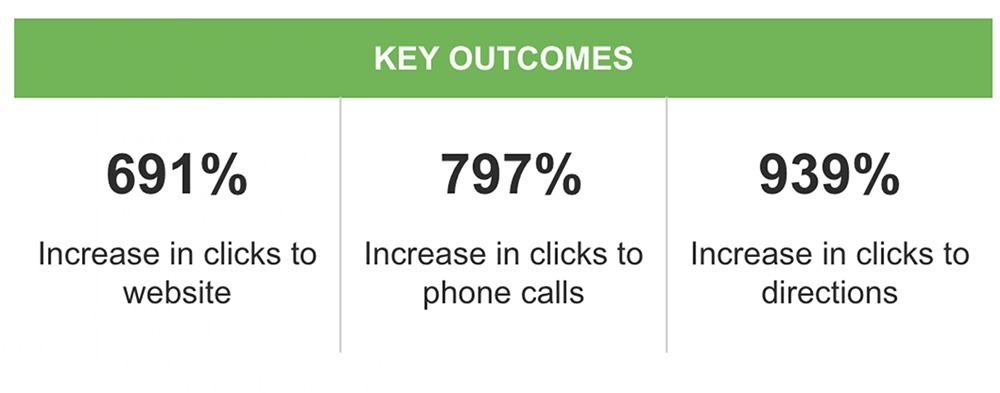How a Retail Mindset in Health Care Drives Patient Acquisition
// By Marlene Kurban //
 ProMedica has operations in 28 states. It saw huge improvements in key metrics after implementing a robust reputation management strategy at scale.
ProMedica has operations in 28 states. It saw huge improvements in key metrics after implementing a robust reputation management strategy at scale.
Consumer expectations have changed since the pandemic, and patients are shopping for health care much like they shop for retail goods. They want a seamless, Amazon-like digital experience and they expect to schedule an appointment, check in, pay a bill, or see a doctor virtually, all from a mobile device. Moreover, they pay attention to patient reviews and post feedback on their own experiences in real time.
The vast majority of consumers trust star ratings and third-party reviews and consider these the third most important decision-making factor after insurance and location. Health care organizations that leverage this dynamic and adopt a digital-first, retail mindset will be positioned to win in this new feedback-driven environment. There’s no turning back. But how best to harness the power of digital and satisfy consumer demand?
Annie Haarmann, head of strategy and consulting, healthcare and life sciences, at Reputation; and Adeline Ashley, director of digital strategy and marketing communications at ProMedica, revealed how ProMedica boosted its visibility by an astounding 4,000 percent increase in Google post impressions, among other huge gains across multiple key metrics, during the recent Strategic Health Care Marketing webinar “Lessons from Retail: How Health Care Can Win by Adapting to Changes in Consumer Behavior” sponsored by Reputation. These two thought leaders are paving the way for a highly successful, digital-first approach to consumers that is achieving stellar results.
Google Loves Google

Annie Haarmann, head of strategy and consulting, healthcare and life sciences, Reputation
Haarmann says it’s important to own all of the search results on Google for your brand, key service lines, and provider names.
“Health care brands should focus on Google to increase visibility because it’s the top destination for consumers who are researching care and seeking reviews and ratings on health care providers. This is especially true for millennials,” Haarmann says. “If your organization’s business goal is to rank within the top three for local search, it’s important to consider all the ranking factors that will get you there. Your reviews, online listings, pages, and social engagement all work together to showcase your consumer experience. Reviews are not only important to the strategy, but they also impact how you show up on Google.
“Google makes up more than 90 percent of local search and Google loves its own products. In search results, Google favors its own content and will prioritize Google My Business listings as the first results in search. It’s also going to prioritize content that includes patient experience,” Haarmann says. “Reviews are now the fastest-growing factor in Google’s algorithm because Google knows how important these reviews are to consumers. And patients are increasingly converting on the Google My Business profile without taking the added step to the organization’s website. The better optimized your Google presence is, the more people are going to take action and the more likely you are to stand out against your competition.”
“In search results, Google favors its own content and will prioritize Google My Business listings as the first results in search.”
Annie Haarmann
ReputationThe Power of Data Management
So how should an organization get started? Haarmann explains that complete and connected data sets the foundation.
“A source of truth for the data should include things like the contact information for your providers, booking and scheduling links, services and categories, bios and credentials of physicians, rich media such as videos and photos, and any category information that will help to connect the right consumer to the right provider,” she says. “From there, you want all that information to flow into a directory so you can manage all this data at scale. This should be the place where you power all of your web presence for all of your locations and providers.”
Besides Google My Business, it’s important for organizations to own and optimize their presence at other sites that matter.
The More Reviews, the Better
For the past three years, reviews have been the fastest-growing factor in Google’s search algorithm. Requesting reviews from patients is essential, but some health care organizations hesitate to do so, fearful of negative sentiment. But not asking for reviews actually has the effect of depressing the volume of positive reviews.
Let’s hear what happens when you do ask for reviews.
“In every case, when we turn on review requesting for customers, it results in a larger volume of reviews and an increase in positive sentiment. And as the number of reviews increases, you’re optimizing visibility by adding more and more patient feedback,” Haarmann says.
“You can use all of this feedback, including ratings and reviews, social media surveys, employee surveys and the like, to build a better patient experience and trigger a workflow to resolve consumer complaints. It isn’t just improving, but reimagining the entire experience altogether,” she adds.
ProMedica’s Journey
ProMedica, a health system with 13 hospitals, four ambulatory surgery centers, and more than 400 post-acute facilities in 28 states, is making its digital strategy a primary focus.
“We’ve been working with Reputation to optimize our Google listings and make sure our information was correct and a source of truth and our directories were dynamic,” says Adeline Ashley.
Let’s listen to what ProMedica learned.
ProMedica is also working on requesting patient reviews.
“We know that will make our doctors and locations more visible,” Ashley says. “Along with that, we’re working on a digital transformation roadmap to make sure our platforms can support what we’re doing and provide a much better digital experience.”

Adeline Ashley, director of digital strategy and marketing communications, ProMedica
ProMedica started with optimizing local search and cleaning incorrect data. Responding to patient reviews was next.
“We worked with operations and other people across the organization to develop a process to respond to positive and negative reviews,” says Ashley. “Having correct data, the source of truth, is key if we’re going to connect a patient to a provider to actually get an appointment.”
“It’s vital to respond to reviews in a way that is scalable and have a plan to help people when they have a problem that needs to be solved,” adds Haarmann.
Phase One Results
Ashley and her team worked to fix more than 5,000 data points, resulting in an impressive 99.6 percent accuracy rate.
“We saw a 4,000 plus [percent] increase in Google post impressions in 2020,” Ashley says. “A lot of that was due to COVID and we needed to make sure that the information we were putting out was accurate. We also saw a huge increase in listing views, from 2.7 million in 2019 up to 11.7 million in 2020. That was amazing to see.”

Clicks to ProMedica’s website skyrocketed in 2020, and there was a spike in clicks-to-call and on directions as well.
“Seeing these results right out of the gate shows the power of the data working across the web and the importance of having data that is accurate and complete when running a program like this,” adds Ashley. “From there it’s just iterating on things like adding in review requesting, Google Q&A, and posts. There’s always plenty to do.”
What’s Next for Phase Two
“We’re looking at our content management system and the next steps in our digital transformation roadmap and building a whole new experience so people can interact with ProMedica in the way they want to interact,” Ashley says. “The future is all about becoming more consumer-focused and delivering that retail experience.”
Marlene Kurban is a freelance writer with more than 20 years of experience in nonprofit management and the behavioral health care field.

![Lessons from Retail: How Health Care Can Win by Adapting to Changes in Consumer Behavior [Webinar]](https://strategichcmarketing.com/wp-content/uploads/2021/08/2021-07-21-SHCM-webinar-reputation.png)